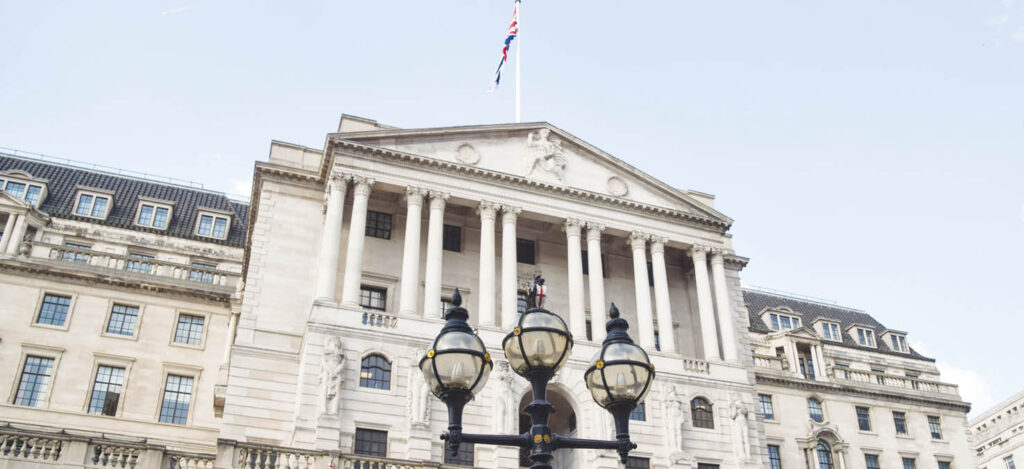
Bank of England cuts Bank rate to 4%, aiming for 2% inflation target medium-term NIESR warns Labour may need tax rises to meet fiscal rules and address growing budget deficit Trump’s new tariffs impact over 90 countries, with negotiated lower rates offering partial stability post-deadline “We will do what it takes to return inflation to […]
| Bank of England cuts Bank rate to 4%, aiming for 2% inflation target medium-term | NIESR warns Labour may need tax rises to meet fiscal rules and address growing budget deficit | Trump’s new tariffs impact over 90 countries, with negotiated lower rates offering partial stability post-deadline |
“We will do what it takes to return inflation to our 2% target”
The Bank of England (BoE) cut Bank Rate from 4.25% to 4% at its August meeting last week, the fifth reduction since August 2024. It seems that it wasn’t an easy decision, as it took two rounds of votes for the Monetary Policy Committee (MPC) to reach a majority.
Ultimately, five MPC members supported the quarter-point reduction while four pushed to keep rates at 4.25%. According to the BoE, the rate cut was informed by the continuing path of disinflation in domestic price and wage pressures. Also, it was hoped that the reduction would help boost the economy and jobs market. The vote was split on expectation that inflation will rise to around 4% in September. The BoE believes that inflation will come back down once these temporary factors have passed.
Andrew Bailey, BoE Governor, commented, “We set monetary policy in a forward-looking manner to return inflation to the 2% target sustainably over the medium term. That sometimes means that we will be able to look through developments that we think are unlikely to last. But we stand ready to adjust our course if we see shifts in the balance of risks to the medium-term outlook for inflation. We will do what it takes to return inflation to our 2% target.”
The BoE also released the latest Monetary Policy Report on Thursday, outlining its analysis of the economy and predictions for the coming months. Twelve-month CPI inflation was an average of 3.5% in Q2 – 0.1 percentage points higher than predicted in the May report. The MPC predicts this will decrease to 2.7% by Q3 of next year. Four-quarter GDP growth is expected to stay around 1.2% and to increase over the next year to 1.3%, dependent on a sustained fall in the household saving ratio.
The National Institute of Economic and Social Research (NIESR) has warned that taxes will likely be raised in the Autumn Budget 2025. When Labour came into power last year, it set itself a rule that the government should only borrow for investment, meaning day-to-day spending should be covered by government revenue (mainly taxes). However, in June borrowing hit the second-highest figure since monthly records began and NIESR has calculated that, by the tax year 2029/30, the government could have a deficit of £41.2bn. Chancellor Rachel Reeves will therefore need to make up the shortfall if she is to reach her own target.
David Aikman, Director of NIESR, observed that Reeves faces “an impossible trilemma.” He explained, “the Chancellor cannot simultaneously meet her fiscal rules, fulfil spending commitments, and uphold manifesto promises to avoid tax rises for working people.” NIESR has therefore recommended a “moderate but sustained” increase in taxes to rebuild the fiscal buffer. The think tank suggests this could be done by extending the freeze to Income Tax thresholds, cutting the current £20,000 cash Individual Savings Account (ISA) allowance and adjusting Corporation Tax rates. However, it acknowledged that each of these options comes with its own drawbacks.
Trump’s tariffs came into effect last Thursday, affecting over 90 countries worldwide. The President first announced his plans to increase import taxes in April. Since then, many countries (including the UK) have negotiated their own lower rates with the US before the deadline of 7 August. Moments before midnight, Trump claimed on social media that “billions of dollars in tariffs” would be flowing into the US.
While the policies have caused uncertainty in many countries, it is hoped that there will be some stability now that rates have been set. Economist Bert Hoffman from the University of Singapore said, “This is supposed to be it. Now you can analyse the impact of the tariffs.”
Office for National Statistics (ONS) data, released on Tuesday shows that job vacancies are down 5.8% to 718,000 and payroll numbers have slipped, especially in hospitality and retail. Despite this, wage growth remains at 5% and unemployment steady at 4.7%, indicating gradual slowdown.
Financial advice is key, so please do not hesitate to get in contact with any questions or concerns you may have.
The value of investments can go down as well as up and you may not get back the full amount you invested. The past is not a guide to future performance and past performance may not necessarily be repeated.
All details are correct at time of writing (13 August 2025)